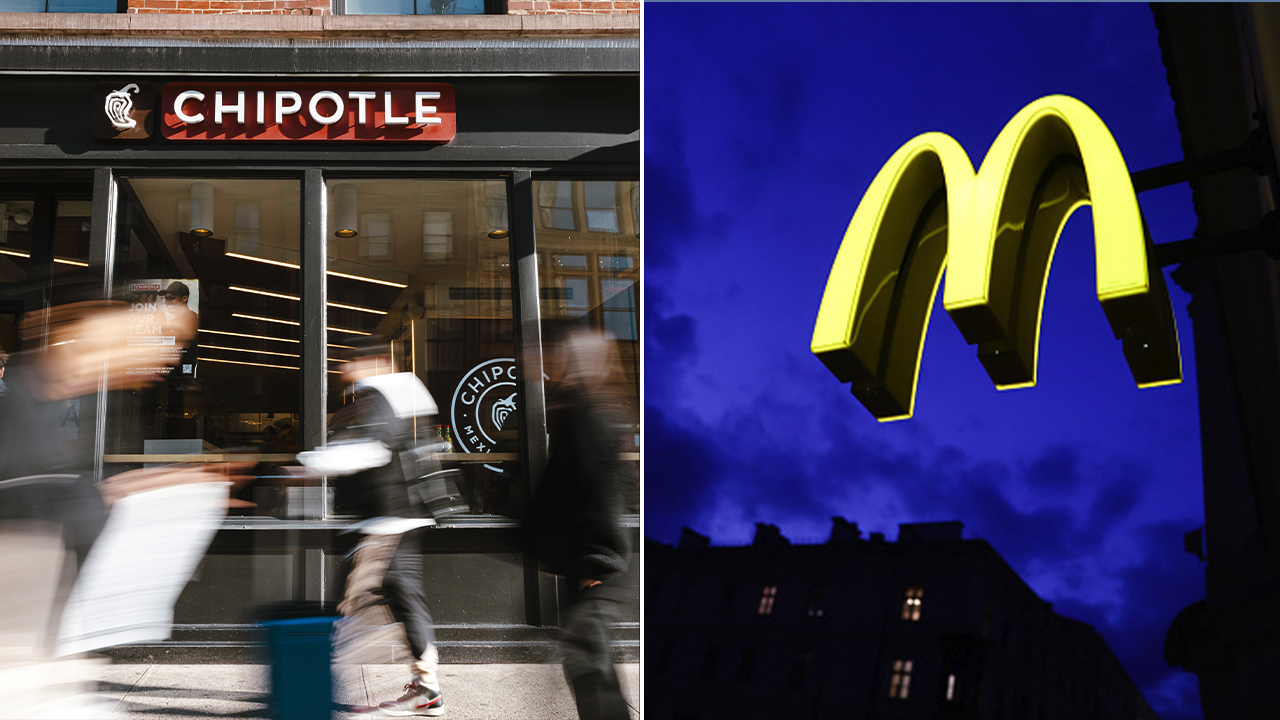Uncommon Knowledge
Newsweek is committed to challenging conventional wisdom and finding connections in the search for common ground.
NEW YORK (AP) — In the mid-1970s, the Eagles were working on a spooky, cryptic new song.
On a lined yellow pad, Don Henley, with input from band co-founder Glenn Frey, jotted thoughts about “a dark desert highway” and “a lovely place” with a luxurious surface and ominous undertones. And something on ice, perhaps caviar or Taittinger — or pink Champagne?
The song, “Hotel California,” became one of rock’s most indelible singles. And nearly a half-century later, those handwritten pages of lyrics-in-the-making have become the center of an unusual criminal trial set to open Wednesday.
Rare-book dealer Glenn Horowitz, former Rock & Roll Hall of Fame curator Craig Inciardi and memorabilia seller Edward Kosinski are charged with conspiring to own and try to sell manuscripts of “Hotel California” and other Eagles hits without the right to do so.
The three have pleaded not guilty, and their lawyers have said the men committed no crime with the papers, which they acquired via a writer who’d worked with the Eagles. But the Manhattan district attorney’s office says the defendants connived to obscure the documents’ disputed ownership, despite knowing that Henley said the pages were stolen.
Clashes over valuable collectibles abound, but criminal trials like this are rare. Many fights are resolved in private, in lawsuits or with agreements to return the items.
“If you can avoid a prosecution by handing over the thing, most people just hand it over,” said Travis McDade, a University of Illinois law professor who studies rare document disputes.
Of course, the case of the Eagles manuscripts is distinctive in other ways, too.
The prosecutors’ star witness is indeed that: Henley is expected to testify between Eagles tour stops. The non-jury trial could offer a peek into the band’s creative process and life in the fast lane of ‘70s stardom.
At issue are over 80 pages of draft lyrics from the blockbuster 1976 “Hotel California” album, including words to the chart-topping, Grammy-winning title cut. It features one of classic rock’s most recognizable riffs, best-known solos and most oft-quoted — arguably overquoted — lines: “You can check out any time you like, but you can never leave.”
Henley has said the song is about “the dark underbelly of the American dream.”
It still was streamed over 220 million times and got 136,000 radio spins last year in the U.S. alone, according to the entertainment data company Luminate. The “Hotel California” album has sold 26 million copies nationwide over the years, bested only by an Eagles’ greatest hits disc and Michael Jackson’s “Thriller.”
The pages also include lyrics from songs including “Life in the Fast Lane” and “New Kid in Town.” Eagles manager Irving Azoff has called the documents “irreplaceable pieces of musical history.”
Horowitz, Inciardi and Kosinki are charged with conspiracy to possess stolen property and various other offenses.
They’re not charged with actually stealing documents. Nor is anyone else, but prosecutors will still have to establish that the documents were stolen. The defense maintains that’s not true.
Much turns on the Eagles’ interactions with Ed Sanders, a writer who also co-founded the 1960s counterculture rock band the Fugs. He worked in the late ‘70s and early ’80s on an authorized Eagles biography that was never published.
Sanders isn’t charged in the case. A phone message seeking comment was left for him.
He sold the pages to Horowitz, who then sold them to Inciardi and Kosinski.
Horowitz has handled huge rare book and archive deals, and he’s been entangled in some ownership spats before. One involved papers linked to “Gone With the Wind″ author Margaret Mitchell. It was settled.
Inciardi worked on notable exhibitions for the Cleveland-based Rock Hall of Fame. Kosinski has been a principal in Gotta Have It! Collectibles, known for auctioning celebrities’ personal possessions — so personal that Madonna unsuccessfully sued to try to stop a sale that included her latex briefs.
Henley told a grand jury he never gave the biographer the lyrics, according to court filings from Kosinski’s lawyers. But defense lawyers have signaled that they plan to probe Henley’s memory of the time.
“We believe that Mr. Henley voluntarily provided the lyrics to Mr. Sanders,” attorney Scott Edelman said in court last week.
Sanders told Horowitz in 2005 that while working on the Eagles book, he was sent whatever papers he wanted from Henley’s home in Malibu, California, according to the indictment.
Then Kosinski’s business offered some pages at auction in 2012. Henley’s attorneys came knocking. And Horowitz, Inciardi and Sanders, in varying combinations, began batting around alternate versions of the manuscripts’ provenance, the indictment says.
In one story, Sanders found the pages discarded in a backstage dressing room. In others, he got them from a stage assistant or while amassing “a lot of material related to the Eagles from different people.” In yet another, he obtained them from Frey — an account that “would make this go away once and for all,” Horowitz suggested in 2017. Frey had died the year before.
“He merely needs gentle handling and reassurance that he’s not going to the can,” Horowitz emailed Inciardi during a 2012 exchange about getting Sanders’ “‘explanation’ shaped into a communication” to auctioneers, the indictment says.
Sanders supplied or signed off on some of the varying explanations, according to the indictment, and it’s unclear what he may have conveyed verbally. But he apparently rejected at least the dressing-room tale.
Kosinki forwarded one explanation, approved by Sanders, to Henley’s lawyer. Kosinski also assured Sotheby’s auction house that the musician had “no claim” to the documents and asked to keep potential bidders in the dark about Henley’s complaints, the indictment says.
Sotheby’s listed the “Hotel California” song lyrics in a 2016 auction but withdrew them after learning the ownership was in question. Sotheby’s isn’t charged in the case and declined to comment.
Henley bought some draft lyrics privately from Gotta Have It! for $8,500 in 2012, when he also began filing police reports, according to court filings.
Defense lawyers claim Henley found starstruck prosecutors to take up his cause instead of pursuing a civil suit himself.
The DA’s office worked closely with Henley’s legal team, and an investigator even yearned for backstage passes for an Eagles show — until a prosecutor said the idea was “completely inappropriate,” Kosinki’s lawyers said in court papers.
Prosecutors have rebuffed questions about their motivations as “a conspiracy theory rather than a legal defense.”
Last year, they wrote in court papers, “It is the defendants, not the prosecutors, who are on trial.”


A 16-year-old boy has been charged in the killing of a beloved middle-school teacher during a burglary in central California last year.
Officers found Sergio Martin, a 50-year-old teacher for the Cutler-Orosi Joint Unified School District, dead from multiple gunshot wounds in his home in Dinuba at around 3 a.m. on Nov. 6, 2023. At the time, police described the shooting as a random act of violence and said the suspect was not a former student of Martin’s.
The teenager was charged with murder and burglary, among other counts, the Tulare County District Attorney said Monday. The teen was arraigned in Tulare County Juvenile Court on Friday.
Under California law, the boy will be tried as a juvenile because he was 15 at the time of the killing. If convicted, he can only remain in custody until the age of 25.
Two others were charged with burglary in connection to the crime, according to the district attorney’s office.
Jorge Arrieta, 21, and Joseph Garcia, 20, were charged with second-degree burglary and accessory. Arrieta is also charged with having stolen property, according to the prosecutor.
The two were arrested on Friday, with Arrieta remaining in custody and arraigned on Monday. Garcia was released on bail and is scheduled to return to court on May 22 for his arraignment.
USA TODAY was working to track down attorneys for Arrieta and Garcia for comment.
Martin taught Spanish at El Monte Middle School for 17 years. Following his death, students and teachers at the school posted dozens of notes with letters and pictures outside his classroom. One of them said, “I am sorry,” while another simply said: “We will miss you, Mr. Martin.”
The educator was a dedicated fan of the Los Angeles Dodgers, his colleague Chris Velasco told KFSN-TV in November.
Emilio Botello, one of Martin’s close friends, said he deeply cared about his parents and students and was enthusiastic about his vinyl record collection.
“Beyond his teachings and in the classroom, he’s affected many kids, but to adults that’s not that easy, it’s not that easy and he’s done that,” Botello told KFSN.
Contributing: Eric Woomer, Visalia Times-Delta

Extreme snowfall will become less common in California by 2100, a new study found.
Scientists understand how a lack of snow or “snow drought” can affect a region, especially in the midst of a warming climate. However, before now, they did not understand the impact of unusually high levels of snow. And this is becoming more important, as California has just emerged from its second winter of high snowfall.
A new study published in the Proceedings of the National Academy of Sciences used the 2023 winter as a case study to learn more. Computational hydrologist Adrienne Marshall and colleagues from the Colorado School of Mines dubbed the term “snow deluges” to describe the phenomenon recently seen in California.
To reach their findings, they analyzed the unusual snow deluge across the Sierra Nevada mountains in 2023 to assess the impact of “high snow years.”
In 2023, California saw an extremely high amount of snow accumulation, with record snowpack levels. Observations showed the accumulations were a “once-in-54-years event,” with some areas reporting “once-in-320-years accumulations,” the study reported.
By looking at climate projections, scientists found that years like these with the so-called “snow deluges” are set to decline by 58 percent by the end of this century. Years with median levels of snowfall are also estimated to decline by 73 percent, they reported.
“California’s massive snow year of 2023 was record-breaking at 42 percent of snow monitoring sites,” Marshall told Newsweek. “Climate models indicate that in warmer future climates, our biggest snow years will be smaller than our biggest snow years now. Another way of putting this is that a snow deluge like we saw in 2023 would be much more rare in a warmer climate like that we might expect later in the 21st century.”
Similar patterns will also be seen across the wider Western U.S., the study reports.
The findings “underscore the significance of uncovering the impact of climate change on the dynamics of snow deluges and snow droughts in mountainous regions,” the study reports.
“These findings align with a bigger scientific picture that shows declining average snowpack and more frequent snow droughts in California and throughout the West,” Marshall said. “Our new findings suggest that we shouldn’t count on big snow years like the one we had last year to save us in warmer climates.
“This is important because snow acts as a natural reservoir in the mountains that stores water until the late spring and summer when we need it most. Our best opportunities to avoid the worst consequences of this snow loss lie in reducing our greenhouse gas emissions and finding ways to adapt to adapt to changing snow and water availability.”
The study notes that snow deluges can be “both destructive and beneficial” meaning better understanding of the phenomenon can improve management of “snow-dependent ecosystems and economies.”
The 2023 snow deluge in California, in many ways, could be seen as good thing. Before it occurred, the state had been suffering from prolonged drought conditions. As a result, there was a severe lack of snowpack in the surrounding mountains, meaning less water was feeding the state’s reservoirs.
The large snow build-up, however, meant that come spring, it melted into rivers and reservoirs, saving the state from a water crisis. In fact, drought conditions in the state officially ended.
However, the heavy snowfall indicates that climate change is worsening, as weather patterns become more unpredictable and extreme. While the drought has ended for now, climate change could cause another prolonged dry period in the future.
“Snow is important for both ecosystems and water resources, and there’s a lot still to learn about how our biggest snow years—or the loss of them—impact these systems,” Marshall said. “The present study focuses on annual-scale snow deluges, but the largest individual snowfall events could change in different ways.
“We focused on a moderate warming scenario in California and the Western U.S., but it would also be helpful to learn more about how different climate scenarios could affect snow deluges in other parts of the world.”
Do you have a tip on a science story that Newsweek should be covering? Do you have a question about California snowfall? Let us know via science@newsweek.com.
Newsweek is committed to challenging conventional wisdom and finding connections in the search for common ground.
Newsweek is committed to challenging conventional wisdom and finding connections in the search for common ground.

Former Fosters Freeze assistant general manager Monica Navarro reacts to the sudden closure and how others are responding on ‘The Bottom Line.’
Prices at Chipotle, McDonald’s and other fast-food giants in California are rising after a minimum wage hike went into effect.
“Chipotle said in an investor call Wednesday that prices at its nearly 500 California restaurants climbed 6% to 7% during the first week of April compared with last year, playing out across its menu,” The Wall Street Journal reported Sunday.
“The state isn’t making it easy,” Chipotle Chief Executive Brian Niccol reportedly said.
CALIFORNIA’S $20 MINIMUM WAGE FOR FAST-FOOD WORKERS GOES INTO EFFECT
Prices at Chipotle, McDonald’s and other fast-food giants in California are rising after a minimum wage hike went into effect. (Getty Images)
“I feel ripped off a little,” Greg LaVay said of rising prices at McDonald’s.
Prices for Chick-fil-A in Los Angeles are also putting the squeeze on customers.
“The price for a spicy chicken sandwich at that location had gone up to $7.09 from $6.29, or 13%, since mid-February, according to research by Gordon Haskett Research Advisors,” The Journal revealed. “Chick-fil-A’s prices increased 10.6% on average in California during that time period, Gordon Haskett found.”
California’s new law boosting the minimum wage for fast-food workers in the state to $20 an hour went into effect on April 1, impacting restaurants that have at least 60 locations nationwide, except those that make and sell their own bread.
Gov. Gavin Newsom signed the legislation, AB 1228, into law in September.
The overall minimum wage for other workers in California is $15.50 an hour, among the highest of any state. The federal minimum wage, which has remained unchanged since 2009, is $7.25 an hour, or $15,080 a year for an employee working 40 hours a week.
CALIFORNIA FOOD CHAINS LAYING OFF WORKERS AHEAD OF NEW MINIMUM WAGE LAW

Los Angeles, CA – September 28:Gov. Gavin Newsom signs legislation raising California fast food workers minimum wage to $20 an hour at SEIU Local 721 in Los Angeles on Thursday, September 28, 2023. Newsom gave Anneisha Williams, who works at Jack in ( Sarah Reingewirtz/MediaNews Group/Los Angeles Daily News via Getty Images) / Getty Images)
Other companies, including Chick-fil-A, Domino’s, Burger King, Pizza Hut, and Jack in the Box have also raised prices since September, The Journal reported.
Chipotle, McDonald’s and Gov. Newsom’s office did not respond to a request for comment from Fox News Digital.
GET FOX BUSINESS ON THE GO BY CLICKING HERE
Fox Business’ Breck Dumas contributed to this report.


Shipping firms plead for UN help amid escalating Middle East conflict


ICE chief says this foreign adversary isn’t taking back its illegal immigrants


'Nothing more backwards' than US funding Ukraine border security but not our own, conservatives say


The San Francisco Zoo will receive a pair of pandas from China


Two Mexican mayoral contenders found dead on same day


Brussels, my love? The EU single market is not sexy enough for voters


Republican aims to break decades long Senate election losing streak in this blue state


EU sanctions extremist Israeli settlers over violence in the West Bank